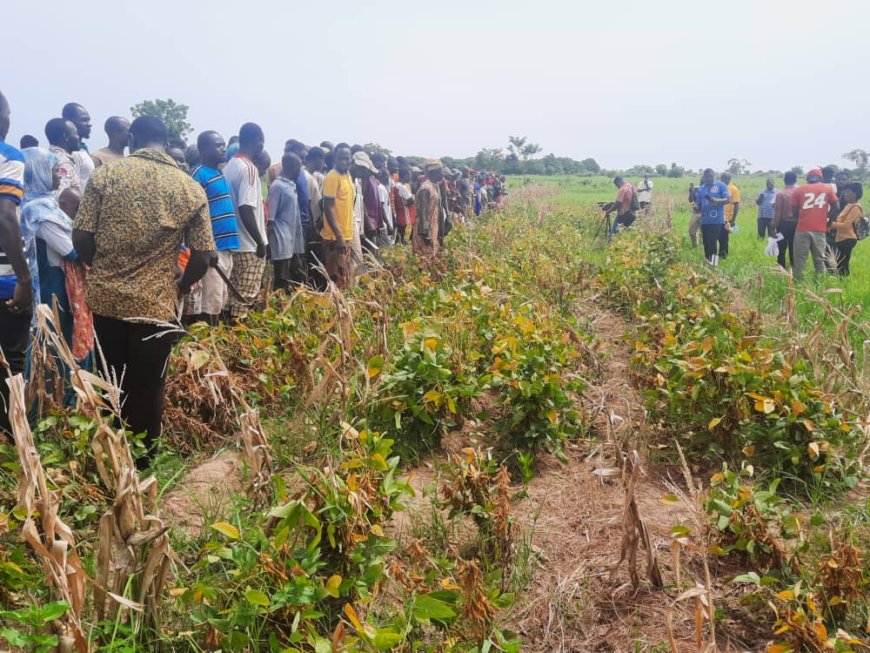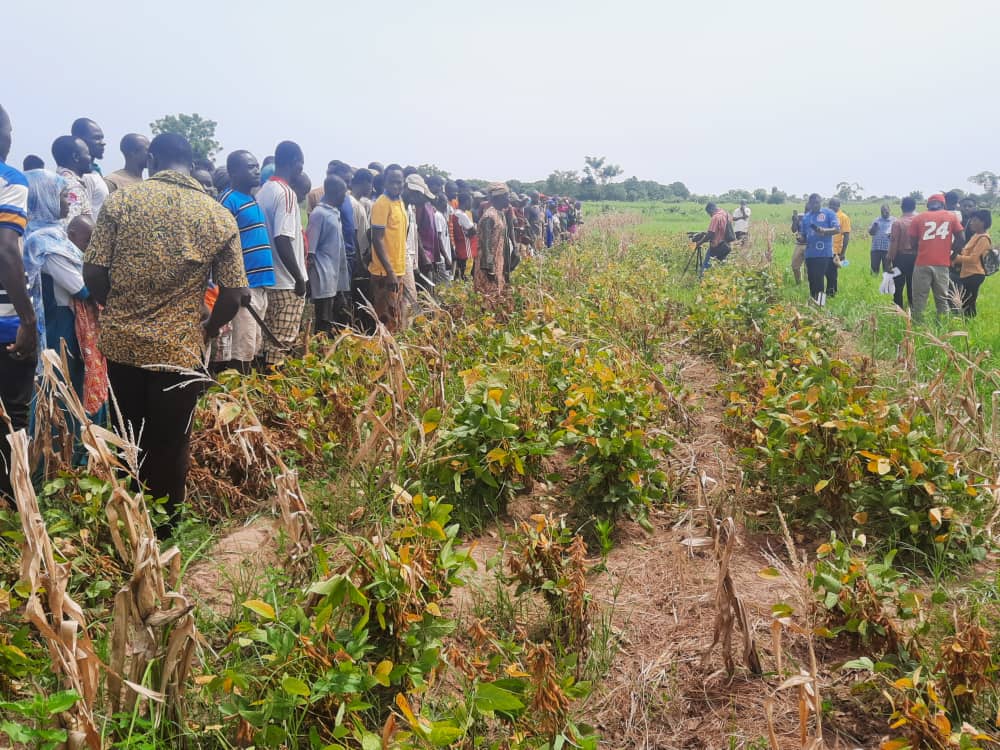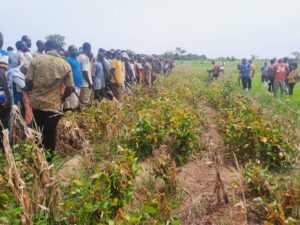New report shows 80% of farmers not registered under PFJ 2.0
Some 80 per cent of farmers in Ghana have not registered under the Planting for Food and Jobs Phase II (PFJ 2.0) as of June 2024, with majority of farmers complaining of difficulty in the registration process, a new report has shown. The post New report shows 80% of farmers not registered under PFJ 2.0 appeared first on Ghana Business News.


 Some 80 per cent of farmers in Ghana have not registered under the Planting for Food and Jobs Phase II (PFJ 2.0) as of June 2024, with majority of farmers complaining of difficulty in the registration process, a new report has shown.
Some 80 per cent of farmers in Ghana have not registered under the Planting for Food and Jobs Phase II (PFJ 2.0) as of June 2024, with majority of farmers complaining of difficulty in the registration process, a new report has shown.
The report indicated that only five per cent were successfully registered with their farms mapped.
About eight per cent had registered but their farms had not been mapped.
Some seven per cent also registered with their farms captured but their data could not be found.
The report is the outcome of a research conducted by the Peasant Farmers Association of Ghana (PFAG), with support from Oxfam and the German Agency for International Cooperation (GIZ).
The research sought to assess the progress of the PFJ 2.0 and to make recommendations to ensure the successful implementation of the programme.
Dr Charles Kwowe Nyaaba, Technical Consultant on the research, presented the findings during a National Stakeholder Validation Workshop on Wednesday in Accra.
The study showed that 56 per cent, constituting most farmers, were pleased with the revision of the Planting for Food and Jobs Phase I (PFJ 1.0) to PFJ 2.0 by the Ministry of Food and Agriculture (MoFA).
However, 20 per cent expressed concerns regarding the frequent policy changes within MoFA, with an additional 15 per cent considering the changes unnecessary, while nine per cent remained indifferent.
Majority of respondents revealed that even though they were engaged in the design of the programme, their perspectives were not taken into consideration in finalising the document and the actual implementation.
Most of the respondents were not too confident the programme would be sustained, explaining that, the PFJ 2.0 seemed more of political programme and might be cancelled after the 2024 General Election by any wining party, be it the New Patriotic Party or the National Democratic Congress.
Majority of the farmers were also not happy with the direct involvement of MoFA assigning aggregators and playing the role of Master Aggregator against the initial concept of the PFJ 2.0 being private-sector focused.
The study also showed lack of clear picture of government investment in the project concept, with MoFA only facilitating aggregators and other value chain actors to transact business.
The study recommended a long-term policy and investment plan devoid of political interference, and must be led by the Technical Directors within MoFA in partnership with National Development Planning Commission (NDPC) and a broader stakeholder consultation.
The research advocated prioritising expenditure to enhance the quality and efficiency of public agricultural spending by focusing on key areas, including marketing, mechanisation, and irrigation development.
The study said Government should rather play a coordinating role by subsidising the cost of operations and providing tax incentives to ensure the production of food at a reduced cost.
It added that the staple crops and vegetables considered under PFJ2. 0 were commendable, but other high-value crops should be included in the medium term.
It also called for active private sector participation in policy formulation and implementation, as well as leveraging National Service Personnel to support the digitisation efforts.
The study involved 4,160 individual farmers comprising 2,268 males and 1,892 females.
Other sectoral stakeholders engaged comprised Registered Aggregators, Seed and Fertilizer Suppliers, PFJ Desk Officers, and Regional and District Directors.
The research involved multi-stage sampling covering three geographical belts, namely, Northern, Middle and Southern, across 13 regions and 42 districts, with primary data collection spanning March 2024 and July 2024.
Source: GNA
The post New report shows 80% of farmers not registered under PFJ 2.0 appeared first on Ghana Business News.























































